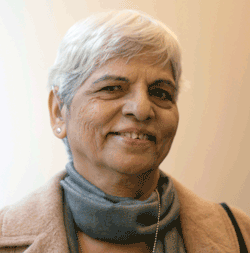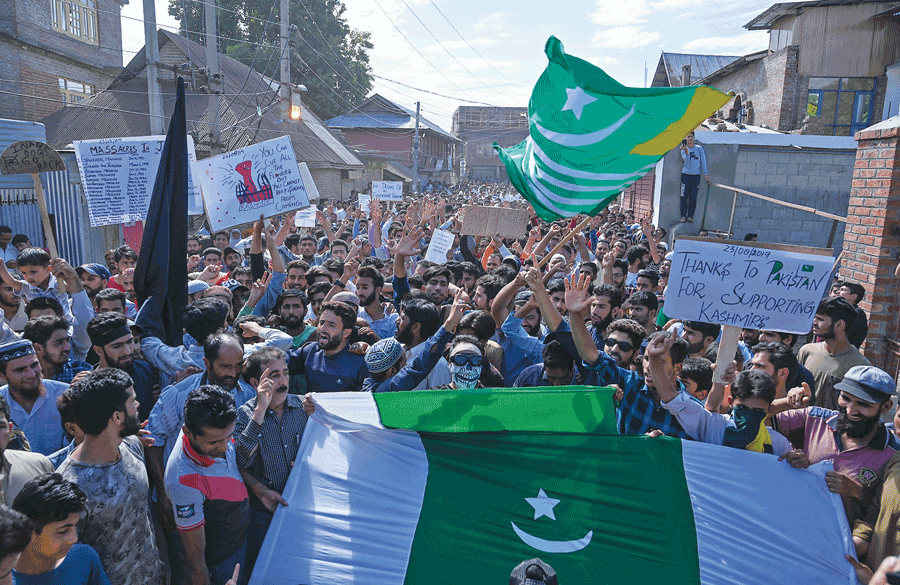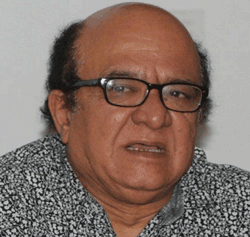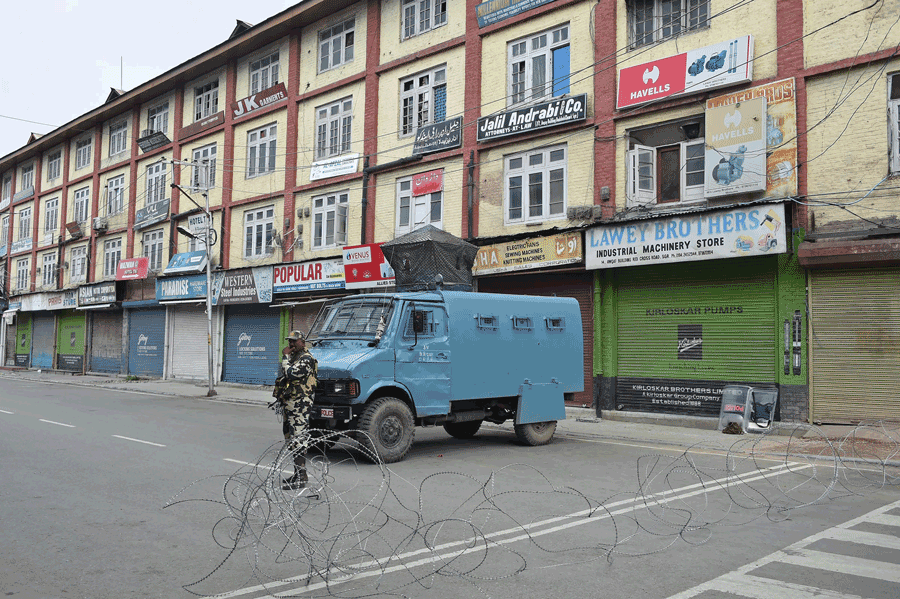The Big Question: Has Pakistan failed Kashmir and the Kashmiris?
By Newsline Editorial Staff | The Big Question: | Published 6 years ago
Anam Zakaria
Pakistan’s Kashmir policy has been inconsistent over the years. Kashmiris have often felt that Pakistan has pushed the Kashmir issue to the backburner when it is convenient, and highlighted it when it suits its political and nationalist ends. Pakistan’s alleged support for jihadist groups, whose actions have spilled over outside of Kashmir – for instance the 2001 Parliament attack in Delhi and the 2008 Mumbai attacks – are also seen by Kashmiris to have jeopardised the indigenous Kashmiri struggle. During my field work in Pakistan-administered Kashmir between 2014-2017, Kashmiris often complained that by supporting these groups Pakistan had turned a legitimate freedom movement into one synonymous with terrorism and cost Kashmiris their azadi.
Diplomatically too, this alleged backing of jihadist groups has weakened Pakistan’s moral ground and made it difficult for the country to garner international support to resolve the Kashmir dispute. But perhaps of most concern is the way Pakistan has treated the very Kashmiris it administers. The UN report issued by OHCHR (Office of the United Nations High Commissioner for Human Rights) in 2018 highlighted significant areas of concern in Azad Jammu & Kashmir and Gilgit Baltistan and the 2019 follow-up has clearly stated that Pakistan has taken no significant steps to address the structural concerns raised in the report.
Furthermore, despite the vulnerability of the population living alongside the Line of Control (LoC), little effort has been invested in ensuring the safety and security of these Kashmiris who face the brunt of Indo-Pak tensions, which painfully manifest in the heavy mortar shelling. The community living close to the LoC has been demanding that individual bunkers be made for households and families for years. But despite the fact that post 2016 – in the aftermath of Hizbul Mujahideen commander Burhan Wani’s death – the LoC has remained heated, all promises of building these bunkers have gone unfulfilled. This leaves the population totally exposed to Indian aggression and women and children susceptible to sexual assault in the community bunkers that they often have to resort to hiding in, to save their lives.
This is a grave concern, for if the Kashmir issue is reduced merely to a political chip to be used in election manifestos, or every August 14 and February 5, to beef up anti-India hostility, with few comprehensive and meaningful measures for the very Kashmiris Pakistan claims to administer, then any effort to raise the wider J&K dispute at international forums is also likely to remain hollow and futile.
Zubeida Mustafa
However much may Pakistan protest and create a rumpus about Narendra Modi and his evil designs on Kashmir, we know that Pakistan has let the Kashmiris down. The present drama is intended to cover its guilt in the matter. Small wonder the world is not responding. We are the ones who should apologise to the people of the Valley who are suffering the consequences of our actions.
It is well known that quite a large number of Kashmiris are enlightened and want to be independent. Initially many of them, led by Shaikh Abdullah, were happy to be with India. When things didn’t work out well for them under India, opinion shifted in favour of independence. The banners they carried in their protest marches had the word ‘AZADI’ inscribed on them. Few have ever asked for merger with Pakistan.
Pakistan has not viewed the azadi demand with a kindly eye. It even clamped down on the Kashmiris living on its side – the so-called Azad Kashmir. People there tell me they could not contest their own elections if they do not accept the “accession” of Azad Kashmir to Pakistan in October 1947, when the territory was in a state of turmoil. During my visits abroad, I have met Kashmiris from the Valley who have told me they want to be independent.
To add insult to injury, Pakistan has sent in militant religious groups, posing as Lashkars with Islamic titles, claiming they were fighting a jihad along with the Kashmiris. The Pakistan Army has persistently denied its involvement in the creation and activities of these non-state actors in the late ’80s, when the Soviet Union pulled out its forces from Afghanistan. But many whistleblowers – the latest being Tariq Khosa, one-time IG Police and Director of FIA – have admitted that the militants, the non-state actors, have been used as “strategic assets” by the ISI. Hafiz Saeed, Muhammad Azhar and their ilk have alienated the bulk of the Kashmiris by their dogmatic ideological ways and have made life difficult for the inhabitants of the Valley by unleashing violence that invited counter-violence from New Delhi. The intervention of the jihadis has taken away the political initiative the Kashmiris never gave up. They have also restricted Pakistan’s options which, as a nuclear power, has been left without even a fig leaf.
Imtiaz Alam
Pakistan’s traditional position on the issue of the Kashmiris’ right of self-determination has been irredentist, while challenging India’s annexation. Both states laid irreconcilable territorial claims to the territory, regardless of what the real stakeholders – the Kashmiris – wanted. The jingoist forces exploited the Kashmir issue to perpetuate conflict and militarisation on both sides of occupied Kashmir.
If India legitimised its claim on the basis of the Instrument of Accession by the Hindu Maharaja of a Muslim-majority state and granted it a “Special Status” under a mutually agreed contract vide Article 370 and 35-A that it gradually aborted and finally scrapped, Pakistan maintained a bureaucratically controlled auxiliary setup of AJK and separately kept a remotely controlled Gilgit and Baltistan as a kind of Union territory of the Northern Areas.
The two governments were averse to granting an unconditional right of self-determination to the people of Jammu and Kashmir. While Pakistan considered Kashmir an unfinished agenda of Partition on religious grounds and declared Kashmir as its “jugular vein,” India viewed it as its “Atoot Ang” or an inalienable part of India – leaving Kashmiris at the mercy of the two contending states, as if it were a territorial contest.
With the rise of Hindu supremacists in India and the spread of Islamic fundamentalism in Pakistan, Kashmiri nationalism has increasingly been adversely affected by communalism. The real issue that remains is one of the right of self-determination that would allow Kashmiris to either become independent or join, in part or fully, either of the two dominions. With India drifting towards a Hindu Rashtra, the people of Indian-held Kashmir are being subjected to the worst kind of collective punishments as they cry for ‘Azadi’ or freedom.
Pakistan would do better by supporting the democratic struggle of the Kashmiri people for their fundamental civil and human rights, while showing its readiness to grant the same rights to Pakistan-held Kashmir, including a referendum, that it demands for Indian-held Kashmir.
Amir Zia
In times of crisis, one should not dwell on the past. It is akin to deflecting the real issue and evading the fundamental question of what needs to be done now? Therefore, I will rephrase the question from, ‘Has Pakistan failed Kashmir’ to, ‘Should Pakistan abandon Kashmir?’
My two-word answer: “No, never.”
Pakistan should never abandon the Kashmiris in their struggle to end the Indian occupation and demand the right of self-determination, in line with UN resolutions. Standing up and fighting for Kashmir is our moral duty and a national cause. We need this kind of sharp clarity of mind, emotional belief, conviction and an unyielding commitment to stand up for Kashmir as a nation – come what may.
With one stroke of the pen, India’s Hindu extremist government, has unilaterally changed the status of Occupied Kashmir: it has divided and made this Muslim-majority state part of its union territory, without taking into account the will of the Kashmiris and violating the United Nations resolutions and its bilateral agreements with Pakistan.
This criminal Indian move to assimilate occupied Kashmir is an open act of war. And it must be seen as such. Resorting to pseudo-intellectual debates revolving around ifs and buts or discussing the past, is a futile exercise. Yes, we know that Pakistan faces an economic crisis and diplomatic challenges. We know our constraints. Let’s now zero in on our enemy’s limitations and weaknesses.
And let’s not waste time waiting for the world conscience to wake-up or international organisations like the United Nations to take any practical steps to help the Kashmiris.
It’s like living in a fool’s paradise. This will not happen – until the world feels the heat and Indians start paying the price for a conflict which they have triggered.
The bitter fact is that there is no justice in history and no room for morality in politics and foreign relations. History is overwhelmingly made by the mighty and the powerful on the blood of the weak and the oppressed, while politics and international relations are driven by national objectives and interests. The moralist sloganeering is best left for peace times. In the real world of politics, it never works.
It is upto the Kashmiris and Pakistanis now to choose to act or not to act against the backdrop of the Indian design to make Kashmiri Muslims a minority in their own land.
As far as the Indians are concerned, they have settled the Kashmir dispute for good in their favour. Now they have to manage the fallout of their decision. The Indians are convinced that as time goes by, the world will accept Kashmir as an integral part of India and they will be able to bully their way into the lives of Kashmiris – if not win their hearts and minds.
Indian calculations are based largely on the presumption that internationally, the tailwind remains in their favour because of the size of their economy. They expect a muted response to their move from the world powers; they expect them to act only to keep the two South Asian nuclear powers at bay from an all-out war.
Secondly, Indians think that the crisis-ridden Pakistan will not go beyond mounting conventional diplomatic efforts, which may earn Islamabad some useless brownie points but will not change the situation on the ground. Empty words and meaningless statements or resolutions will not help the Kashmir cause. Neither will our demonstrations in Pakistani cities and some western capitals hurt New Delhi nor our jihad on the social media, the virtual world and on the local television screen. And New Delhi knows this.
By lowering the threshold of their response to the armed struggle of the Kashmiri mujahideen and using forums like FATF, India has cleverly kept Pakistan under pressure. They assess that without Pakistan’s active and practical support, they will be able to crush any political or armed uprising of the Kashmiris.
The Indian game is apparently flawless.
Pakistan can only put a spanner in India’s plans and attempt to turn the tide by resorting to unconventional means and restrained brinkmanship. This does not mean abandoning conventional diplomatic and political efforts, but Pakistan has to up the ante – if its leadership is serious about Kashmir.
To begin with, Pakistan must shun their apologetic attitude as regards the armed resistance of Kashmiris and provide active diplomatic, political and moral support to this indigenous movement. At the same time, Pakistan should adopt an uncompromising defensive stance – in case India strikes, using the bogey of terrorism. Pakistan should make it clear to the world that it will climb the escalation ladder swiftly and deliver the hardest blow possible in case India resorts to adventurism on the international frontier or at the line of control.
The Pakistan government has to look within to draw for strength and bank on its armed forces and people for the country’s defence, sustenance and survival rather than towards the western capitals and our “brotherly” Muslim countries.
Pakistan does not seek war. A war between two nuclear-armed neighbours would be sheer madness, but if it is thrust upon us, then let’s give India a war instead of settling for a bad peace.
Pakistanis and Kashmiri need to be clear on one score: if we are not able to stand up for Kashmir now, we will not be in a position to do so a couple of years down the road, when the Indian grip on Kashmir will have been consolidated and demographic changes been orchestrated. It is now or never. n








